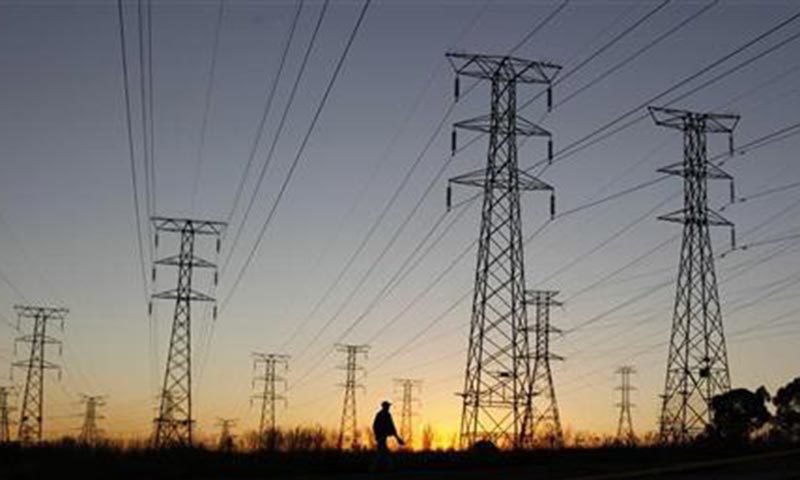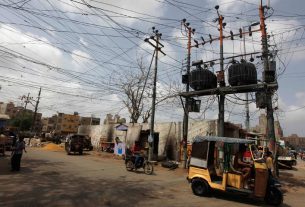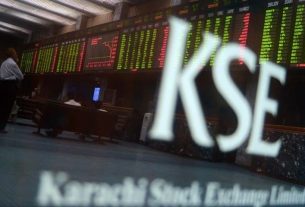ISLAMABAD: In a majority decision, the National Electric Power Regulatory Authority (Nepra) on Thursday notified an increase of 84-paisa per unit increase in electricity rates for ex-Wapda distribution companies (Discos) to generate about Rs12 billion additional revenue.
The increase was allowed on account of monthly fuel cost adjustment (FCA) for electricity consumed in July and would be charged to consumers in the current billing month. The tariff increase will be applicable to all customers except lifeline ie 50 units per month.
The regulator had questioned the justification for furnace oil- and diesel-based expensive power generation during public hearing on September 1 and announced that it would announce judgment after detailed analysis of record and data as Discos demanded 86-paisa per unit increase in electricity rates.
Interestingly, Nepra case officers during the hearing had presented 84-paisa per unit increase. However, as the opposition parties criticised the tariff rise, the regulator issued an unusual statement saying “no decision of the authority on the subject matter has been made”.
More than a month later, the regulator notified exactly the same 84-paisa per unit raise and yet claimed that it was being done on provisional basis subject to verification. In its determination, Nepra observed that prima facie, certain power plants “were not fully utilised and instead energy from costlier residual fuel oil and high-speed diesel-based power plants was generated to the tune of over Rs14bn (Rs11.95bn and Rs2.09bn, respectively).”
Nepra noted that had this energy been generated from other sources like RLNG or coal, this would have resulted in reduction in total fuel cost claimed by the Central Power Purchasing Agency (CPPA). “In view thereof, the cost of furnace oil & HSD claimed by CPPA in the instant monthly fuel cost adjustment is being allowed only on provisional basis, subject to verification”.
The determination repeated Nepra’s orders issued during the public hearing last month to CPPA and National Power Control Centre (NPCC) to “provide complete justification in this regard to the satisfaction of the authority and submit complete details for generation made on RFO/HSD, showing hourly generation along with the financial impact for deviation from economic merit order (EMO), if any, and the reasons thereof.”
This prompted the Nepra member from Sindh Rafique Ahmed Shaikh to contest the majority decision. In his detailed dissenting note, Mr Shaikh said the non-utilization of the costlier power plants was serious and causing huge financial losses which had also been confirmed by the monitoring and enforcement department in additional note.
He said the NPCC and CPPA were directed that any out of merit power plant despatch by the former should be notified to the latter and Nepra immediately. The CPPA, being procurer of power on behalf of Discos, was also required to thoroughly scrutinize the generation data with monthly fuel supply arrangement and furnish a certificate that power plants were operated strictly following the merit order.
In case any power plant is operated in disregard to the merit order, the CPPA has to quantify and verify the commercial impact on the customers and submit a report to the regulator. Shaikh noted with concern that directions given to NPCC and CPPA were not being followed. He wondered that Nepra in its decision was passing on “the impact of losses on account of operation of costlier power plants in violation of EMO” to consumers provisionally.
He observed that this increase should not have been passed on to consumers given the fact that CPPA had neither furnished the requisite certificate nor submitted commercial impact of operations of power plants in violation of merit order. Also, the CPPA and NPCC did not comply with regulator’s orders and hence the “consumers couldn’t be burdened on non-performing the duties of the entities”.
In its majority decision of 3-1, the regulator conceded power companies’ view that actual fuel cost worked out at Rs4.3796 per unit against a pre-determined reference cost of Rs3.542. Thus, an increase of about 84 paisa per unit.
PPP lawmaker Nafeesa Shah criticised the tariff hike and demanded its immediate withdrawal. She said the government was penalising the people through increase in petrol, electricity, wheat flour, sugar and other essential items.
Total energy generation from all sources in July was recorded at 14,711GWh at Rs63bn, having an average per-unit fuel cost of Rs4.29. About 14,434GWh were sold to the Discos for Rs63.56bn at average of Rs4.40 a unit. About 1.88pc units were reported as transmission losses.



